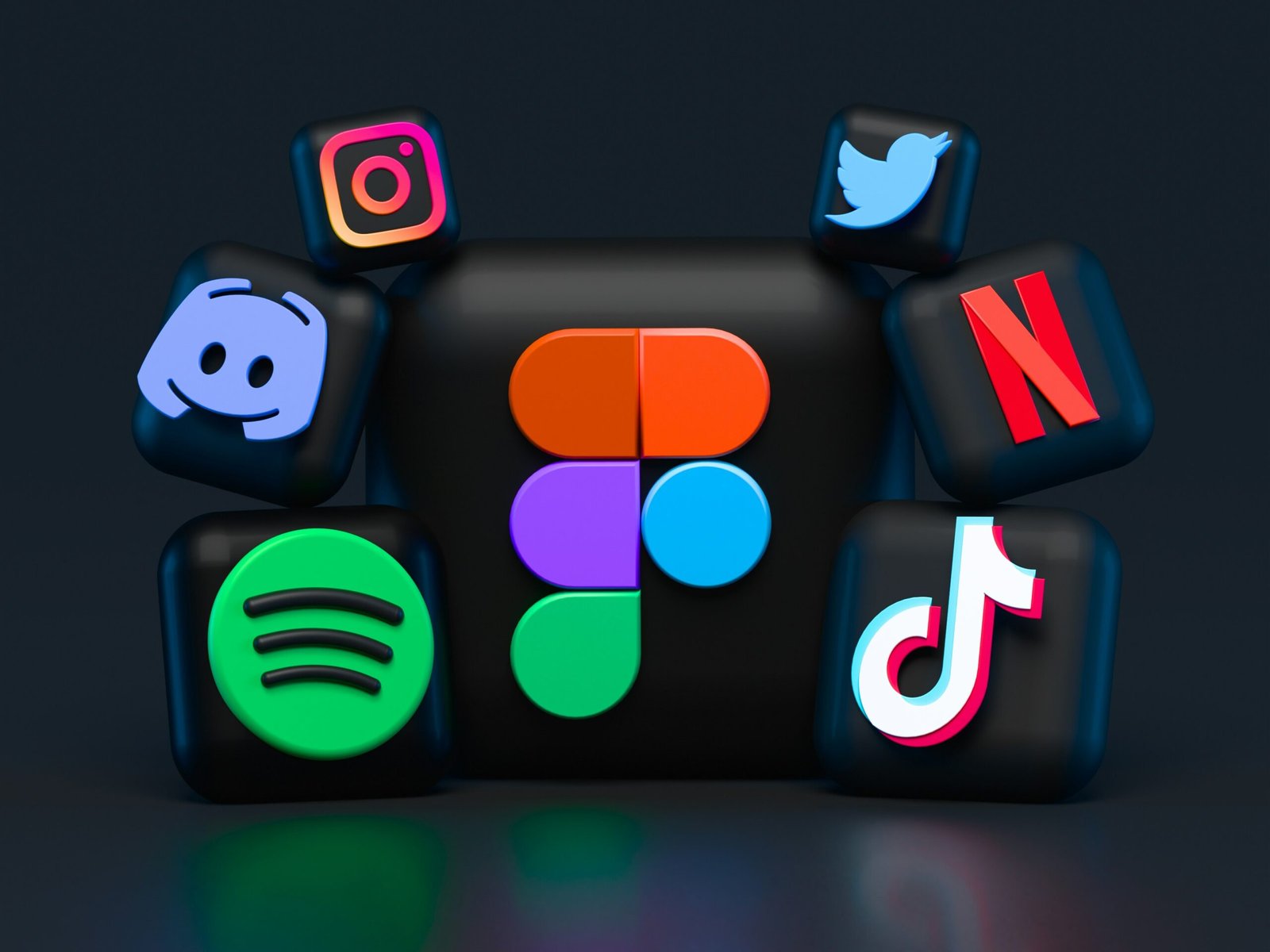Understanding Social Media Addiction: Causes, Signs, and Solutions


Introduction to Social Media Addiction
In today’s digital age, social media has become deeply ingrained in our everyday lives, offering connecting opportunities, entertainment, and a platform for self-expression. However, this pervasive use of social networking services has raised significant concerns regarding social media addiction, a behavioral condition characterized by excessive or compulsive use of these platforms. The convenience and accessibility of social media have made it increasingly easy for individuals to spend prolonged periods scrolling through feeds and engaging with content, which, in some cases, may lead to detrimental effects on mental health and well-being.
The increasing prevalence of social media platforms such as Facebook, Instagram, Twitter, and TikTok has had a profound impact on communication and social interaction. A study reported that over 3.5 billion people worldwide use social media, a number that continues to grow. As a result, the amount of time people dedicate to browsing and interacting with online content has surged, often resulting in compulsive behaviors indicative of addiction. Many users find themselves absorbed in a never-ending cycle of checking notifications, likes, and comments, ultimately leading to detrimental consequences such as sleep disturbances, anxiety, and decreased productivity.
Social media addiction is not solely about the volume of time spent online; it also encompasses the emotional and behavioral aspects associated with its use. Individuals may experience withdrawal symptoms when attempting to disconnect or limit their access, leading to increased anxiety or irritability. Moreover, the addictive nature of social media often manifests in a profound need for validation through likes and shares, which can reinforce these compulsive scrolling behaviors. Awareness of the signs and implications of social media addiction is crucial to address the issue effectively. Understanding its impact on individuals and society can foster healthier online habits and promote a balanced relationship with digital platforms.
The Science Behind Social Media Addiction
The phenomenon of social media addiction is increasingly drawing the attention of psychologists and neuroscientists who aim to understand the underlying mechanisms that contribute to this dependency. At the core of social media use is the brain’s reward system, which is primarily driven by the neurotransmitter dopamine. When users receive notifications or likes on their posts, a surge of dopamine is released, creating feelings of pleasure and reinforcing the behavior of checking social media. This biological response, akin to the reward pathways associated with substance dependence, underpins the compulsive nature of scrolling through social media platforms.
Research indicates that the design of social media itself plays a critical role in fostering addictive behaviors. Features such as endless scrolling, notifications, and curated content algorithms are engineered to capture users’ attention and keep them engaged for extended periods. This design exploits the human brain’s innate desire for social connection and validation, which can lead to excessive use and eventually addiction. Studies suggest that the unpredictability of rewards—such as receiving likes or comments—mimics the mechanics of gambling, generating a cycle where individuals continuously seek the next reward, often at the expense of their personal and social lives.
In addition to dopamine, other psychological factors contribute to social media addiction. For some individuals, feelings of loneliness or boredom drive them to engage with these platforms as a compensatory mechanism. The social validation obtained from online interactions can offer temporary relief from negative emotions, creating a feedback loop that encourages more frequent use. Understanding these psychological and neurological components is crucial for developing effective strategies and advice for individuals struggling with social media addiction, as addressing these underlying mechanisms is essential for achieving healthier online habits.
Who is at Risk for Social Media Addiction?
Social media addiction encompasses a wide array of demographics, with particular groups displaying a higher susceptibility to its compulsive nature. Research has consistently indicated that younger individuals, particularly those aged between 18 to 29, are more prone to developing dependency on these platforms. The integration of social media into daily life for this age group often leads to increased scrolling behavior, contributing to possible addiction. Adolescents and young adults utilize these platforms for social interaction, validation, and self-expression, which can quickly escalate to an unhealthy relationship with technology.
Moreover, personality traits play a pivotal role in determining one’s vulnerability to social media addiction. Individuals who exhibit high levels of neuroticism or low self-esteem may use social media as an escape from their insecurities or as a means to seek validation. The instant gratification provided by likes and comments may momentarily alleviate feelings of inadequacy, further entrenching their reliance on these digital interactions. Additionally, people exhibiting impulsive behavior are more likely to engage in excessive scrolling, thereby increasing their risk of addiction.
Life circumstances such as social isolation or limited offline support systems can also increase the likelihood of social media dependency. Individuals enduring loneliness may turn to social media as a source of connection, inadvertently fostering an addiction. Furthermore, pre-existing mental health conditions, including anxiety and depression, can create a cyclical relationship with social media. These individuals may engage more heavily with social media to manage their emotional state, inadvertently worsening their mental health over time.
In summary, a combination of demographic factors, personality traits, and life circumstances contributes significantly to the risk of developing social media addiction. Understanding these factors is crucial to address the growing concerns surrounding excessive online engagement and to implement effective strategies for mitigation.
Signs and Symptoms of Social Media Addiction
Social media addiction manifests through a variety of signs and symptoms that can significantly affect an individual’s life. Identifying these indicators is crucial for recognizing when casual use has escalated into a compulsive behavior. A common sign is excessive scrolling, often referred to as “doomscrolling,” where individuals continuously consume content without any specific purpose, leading to unproductive hours wasted online. This behavior can be particularly detrimental as it interferes with personal and professional responsibilities.
Emotional changes are another significant symptom of social media addiction. Individuals may experience heightened feelings of anxiety or depression when not engaged on these platforms. Some may find themselves feeling lonely or disconnected, despite having online connections. This paradox highlights the emotional toll of relying too heavily on virtual interaction, which can diminish real-life connections and support systems.
Social consequences also arise from an overreliance on social media. People may start prioritizing online interactions over meaningful, face-to-face relationships, leading to isolation. Social gatherings may take a backseat as users prefer remaining online, which further exacerbates feelings of loneliness. Moreover, an obsession with online validation, through likes and comments, can risk an individual’s self-esteem, leading to a cycle of dependence on social media for approval.
The behavioral signs of social media addiction can include neglecting personal hygiene or responsibilities, as individuals become preoccupied with their online presence. It is essential to recognize these symptoms both in oneself and in others. Awareness is the first step toward addressing the underlying issues that contribute to social media addiction, enabling users to seek appropriate support and develop healthier habits.
Impact of Social Media Addiction on Mental Health
Social media has transformed the way individuals communicate and connect, yet its pervasive influence has led to a growing concern regarding social media addiction and its detrimental effects on mental health. Many users find themselves compelled to engage in extensive scrolling, often leading to a sense of obligation rather than genuine enjoyment. This compulsive behavior can trigger anxiety and feelings of isolation, particularly among heavy users.
One of the most significant mental health concerns linked to social media addiction is depression. Numerous studies suggest a correlation between excessive use of social platforms and heightened levels of depressive symptoms. Individuals may inadvertently create unrealistic comparisons with others, leading to feelings of inadequacy and sadness. The constant influx of curated lives can lead individuals to question their self-worth, further exacerbating existing mental health issues.
Moreover, lower self-esteem is another crucial factor associated with heavy social media usage. As users strive for validation through likes and comments, their self-image becomes increasingly reliant on external approval. This dependence can create a vicious cycle where a lack of social media interaction can leave individuals feeling unworthy and anxious. In this context, social media addiction does not merely impact isolated moments of an individual’s life; rather, it can lead to profound emotional distress that permeates other areas of their mental well-being.
Overall, the interplay between social media addiction and mental health is complex and multifaceted. As the digital landscape continues to evolve, it is imperative for individuals to recognize the potential impacts of excessive social media use. Seeking professional help, practicing mindfulness, and establishing healthy online boundaries may serve as viable advice for managing one’s relationship with social media and safeguarding mental health.
Strategies to Combat Social Media Addiction
Addressing social media addiction involves implementing practical strategies that foster healthier habits. One effective technique is setting time limits on social media usage. Many platforms now provide built-in tools that allow users to track and restrict their time spent scrolling. By allocating specific time slots for social media engagement, individuals can significantly reduce excessive consumption and create a more balanced online experience. This disciplined approach not only curbs addiction but also encourages users to engage more intentionally rather than mindlessly scrolling through feeds.
Another essential strategy is decluttering news feeds. Social media platforms often bombard users with content that may not be relevant or fulfilling. By unfollowing accounts that do not add value and curating a more meaningful feed, individuals can ensure their social media experiences are enriched with positive interactions. This selective engagement helps mitigate feelings of overwhelm and reduces the urge to aimlessly navigate through a multitude of posts, decreasing the likelihood of addiction.
Implementing digital detox periods can also be beneficial in combating addiction to social media. Designating specific times, such as weekends or certain hours of the day, to refrain from social media can help individuals reset their relationship with these platforms. During these detox periods, engaging in alternative activities such as reading, exercising, or spending time with family can fill the void often occupied by scrolling. These breaks not only reduce dependency on social media but also enhance overall well-being by promoting real-life connections and fulfilling experiences.
By combining these strategies—setting time limits, decluttering feeds, and embracing digital detoxes—individuals can take significant strides toward overcoming social media addiction. The key is to create mindful interactions with social media while cultivating healthier online habits that prioritize personal well-being.
Recommendations from Mental Health Professionals
As the prevalence of social media usage continues to rise, mental health professionals have increasingly recognized the potential for social media addiction to impact individuals’ well-being. Experts emphasize the importance of self-assessment in understanding one’s relationship with social media and identifying behaviors that may signal an unhealthy reliance on these platforms. One common piece of advice is to conduct a digital detox. This involves taking a break from social media for a set period to evaluate how one feels without the constant stimulation of scrolling through feeds. Such a break can provide individuals with insight into their social media habits and help them recognize whether their usage is a source of joy or anxiety.
Another recommendation from mental health experts is to set clear boundaries on social media use. This can include defining specific times to engage with social media and establishing limits on the overall amount of time spent online. For instance, sticking to a rule where social media is not accessed during meals or before bedtime can significantly reduce excessive scrolling and promote healthier habits. Additionally, experts advocate for the use of technology to manage technology itself—utilizing apps that track social media usage and provide reminders when usage exceeds set limits is an effective method for fostering more mindful engagement.
Lastly, professionals advise seeking meaningful connections outside of digital interactions. Engaging in activities that promote real-world interactions, such as joining clubs or participating in physical activities, can help individuals find fulfillment beyond social media. By following these recommendations, individuals can create a more balanced relationship with technology, mitigating the risk of social media addiction and enhancing overall mental health. In conclusion, recognizing the signs and implementing expert suggestions can empower individuals to harness the positive aspects of social media while minimizing its potential adverse effects.
Resources for Help and Support
As awareness of social media addiction continues to grow, it is crucial for individuals seeking help to have access to a variety of resources. Numerous tools, support systems, and professional services are available to assist those grappling with the effects of excessive social media use. Below is a compilation of helpful resources categorized into books, websites, support groups, and professional services.
Books can serve as a valuable starting point for understanding the psychological and emotional impacts of social media addiction. Titles such as “Irresistible” by Adam Alter and “Digital Minimalism” by Cal Newport provide insightful perspectives on the implications of social media on mental health and strategies for managing technology use. These resources emphasize the importance of healthy boundaries and conscious engagement with social platforms.
Websites dedicated to mental health and digital well-being are also essential. Organizations like the Anxiety and Depression Association of America (ADAA) and Mental Health America offer articles, toolkits, and guidelines to help individuals assess their social media habits. Tools like “Screen Time” or “Moment” can track and limit usage, fostering more intentional interaction with social media.
Support groups, both in-person and online, provide community and understanding. The National Alliance on Mental Illness (NAMI) offers peer support groups that encourage open discussions around challenges associated with social media addiction. Online forums, such as Reddit’s r/DecidingToBeBetter or Facebook support groups, can also connect individuals facing similar struggles and promote accountability.
Lastly, professional services should not be overlooked. Therapists or counselors specializing in addiction can offer personalized strategies and coping mechanisms for those affected by social media use. Exploring platforms like TherapyDen or Psychology Today can help individuals find therapists who understand the nuances of social media’s impact on mental health.
Utilizing these resources can empower individuals to address their social media habits constructively, and seek support when necessary.
Embracing a Balanced Digital Life
In an age where social media has become an integral part of daily life, understanding social media addiction is paramount. The impact of excessive online scrolling and engagement on mental health cannot be overlooked. Throughout our discussion, we have explored the causes that lead individuals to develop an addiction to social media platforms, including the instant gratification they provide and the social validation that many seek. Recognizing these factors is the first step toward fostering a healthier relationship with technology.
We have also identified several signs of social media addiction, such as compulsive use, withdrawal symptoms when offline, and a decline in real-life interactions. These indicators highlight the importance of self-awareness in managing our digital presence. Implementing small changes in social media habits can lead to significant improvements in overall well-being. Strategies such as setting time limits on social media usage, curating feeds to eliminate negative influences, and designating specific times for device-free activities can promote a more balanced approach to digital life.
Beyond individual strategies, cultivating a supportive environment can help in mitigating the effects of social media addiction. Engaging friends and family in conversations about healthy screen time practices facilitates accountability and encourages collective well-being. Ultimately, embracing a balanced digital life means recognizing the value of offline experiences and prioritizing authentic connections.
In conclusion, navigating the complexities of social media requires conscious effort and thoughtful reflection. By acknowledging the potential hazards of overindulgence and taking proactive measures toward healthier digital habits, individuals can ensure that their social media use enriches rather than detracts from their lives. Striving for balance is key, allowing us to harness the benefits of social media while safeguarding our mental health and fostering meaningful interpersonal relationships.
Thanks for checking out the article you can join our mental health community by signing up





Responses